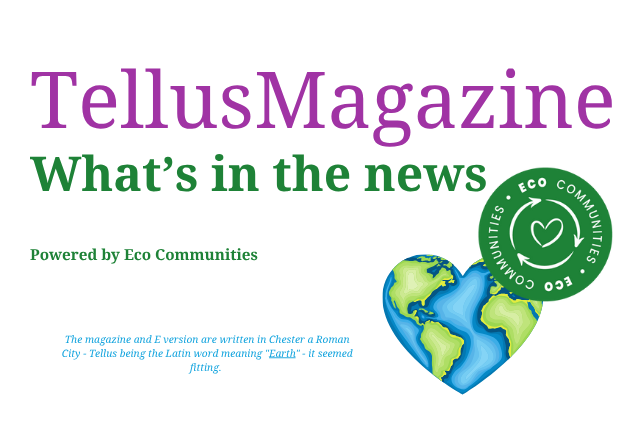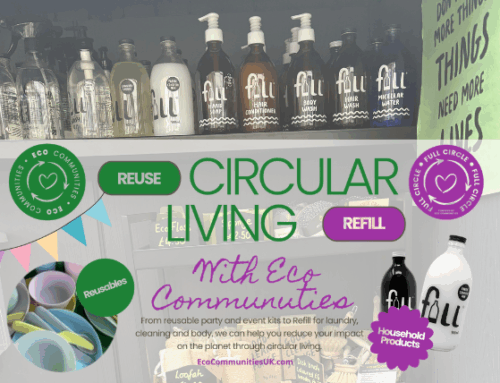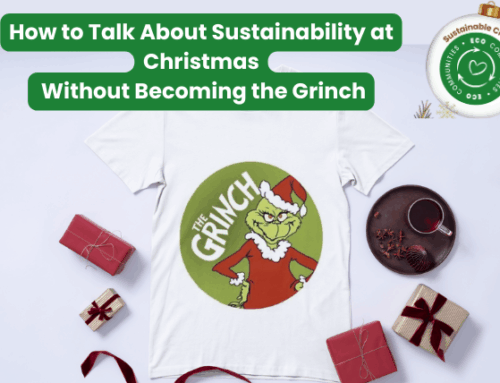
Our Long Read Items are listed below- you can skip to the items that interest or read the whole blog.
- Red Squirrel Sightings on the Rise in Penrith, Cumbria
- Green sea turtles have achieved a major conservation milestone.
- Eco Communities Joins the Better Business Network
- Project Salt Run – 100 Marathons in 100 Days
- Spotlight on ClientEarth – Plus an Event Invite 11th Dec
- The Budget Must Prioritise Public Transport – Here’s What Campaign for Better Transport Is Asking For
- New Bathing Water Rules – What’s Changing?
Lets start with a couple of good news nature articles.
Red Squirrel Sightings on the Rise in Penrith, Cumbria

During a recent trip to Waterfoot Caravan Park near beautiful Pooley Bridge, we had an unexpected wildlife moment: a red squirrel trotting along the fence behind our campervan—something we might have missed if it weren’t for Teddy, our ever-alert dog!
Local reports suggest red squirrel sightings are increasing around Penrith as conservation efforts and habitat protections continue to take effect. It’s an encouraging sign for one of the UK’s most threatened native species, and a reminder of the importance of continued support for woodland conservation across Cumbria and beyond.
Green sea turtles have achieved a major conservation milestone.
Green sea turtles have achieved a major conservation milestone this year, with the species being reclassified from “Endangered” to “Least Concern” on the IUCN Red List. Their global population has rebounded by around 28% since the 1970s, thanks to decades of coordinated protection efforts. Safeguarding nesting beaches, reducing accidental bycatch in fishing gear, and restricting the trade in turtle products have all contributed to this remarkable turnaround. In many coastal regions, community-led conservation groups have played an essential role by patrolling beaches, monitoring nests, and educating visitors.
This recovery is a powerful reminder that committed, long-term environmental action genuinely works. Green sea turtles still face threats from climate change, marine plastics, and habitat loss, but their recent progress shows what is possible when governments, scientists, and local communities collaborate. The story offers welcome hope at a time when so much environmental news feels daunting—proof that species on the brink can bounce back when given space, protection, and time. We talk about turtles a lot in our plastic free talks and so this is great news. If only we could keep the plastic from the oceans that would also help.

Eco Communities Joins the Better Business Network
We’re thrilled to announce our membership in the Better Business Network, a values-driven community supporting organisations working for people and planet.
What this means for our team and supporters:
-
Access to purpose-led business resources and learning
-
Collaboration opportunities with ethical, climate-focused organisations
-
Events, training, and networking to strengthen our social impact
-
Increased visibility for our environmental work
More details to follow as we get involved!
Project Salt Run – 100 Marathons in 100 Days
We also want to celebrate Hannah, founder of the Better Business Network, Helen attended her Manchester leaving party as she prepared to set off on Project Salt Run:
100 marathons in 100 days across India, raising funds for four climate charities including ClientEarth.
You can follow her journey:
Her effort is an inspiring reminder of how individual action can fuel collective climate progress.
Support Hannah in raising money..
Spotlight on ClientEarth – Plus an Event Invite 11th Dec
ClientEarth is one of the world’s most impactful environmental law charities, taking governments and corporations to court to protect climate, nature and human health.
Join ClientEarth Live – 2025 in Review
Thu 11 Dec, 9:30 AM GMT
Hear from experts about this year’s major wins, global legal breakthroughs, and what’s next for climate justice. 2025 has tested global commitment to environmental action – but it’s also delivered landmark progress and renewed hope for climate justice. Join our experts for ClientEarth Live: 2025 in Review as they reflect on the year’s pivotal achievements, challenges and what comes next.
The Budget Must Prioritise Public Transport – Here’s What Campaign for Better Transport Is Asking For
With the Autumn Budget approaching, Campaign for Better Transport has written to Chancellor Rachel Reeves urging action to shift transport policy away from polluting car dependency and towards greener choices. Their proposals are smart, fair, and fundable:
1. Ending the 5p Fuel Duty Cut
Fuel prices are now far lower than when the “temporary” cut began in 2020.
Restoring the duty would recoup £2.6 billion/year, and the usual inflation-linked increase would generate an additional £1.6 billion in year one, with minimal impact on individual drivers.
2. A Per-Mile Charge for Electric Vehicles
As EVs grow, fuel duty revenue will collapse. A small, fair, per-mile charge would avoid a looming budget hole while keeping EVs cheaper to run than petrol or diesel.
3. Closing the Aviation Loophole
A kerosene tax of 33p per litre—excluding lifeline island flights—would raise £594 million annually.
A new “super” Air Passenger Duty rate for private jets, plus VAT on private jet flights, would raise £1.5–2 billion more.
4. Prioritising Public Transport
These funds could transform buses and trains, cut fares, and improve services nationwide—benefiting millions.
Fingers crossed we see some good news at the end of the month.
New Bathing Water Rules – What’s Changing?
The Government has announced updates to how bathing waters are designated. Campaigners are calling it a mixed bag:
What’s Good
-
No automatic de-designation anymore. Sites won’t be removed just because they’re difficult or expensive to clean—giving more chance for long-term protection.
What’s Concerning
-
Tougher rules for new designations. This could make it harder to protect rivers—already in poor health—until water companies take major action.
-
Variable bathing seasons introduced.
While longer seasons are possible, shorter ones could be approved too—creating a postcode lottery, and potentially weakening year-round river and coastal protection.
We’ll continue monitoring and calling for full, year-round protections.




